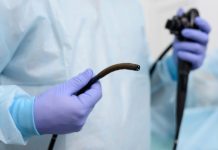Sometimes a disease can’t be diagnosed and treated precisely, especially when a patient has persistent pain in the abdominal region, pancreas, gallbladder, small and large intestine, or other symptoms including ulcers, nausea, or difficulty in swallowing.
That’s when Endoscopic procedure comes in handy. An endoscope is a long, thin, flexible tube with a camera attached to the tip. This tube is inserted into the patient’s mouth to study the inner walls and linings of the esophagus and stomach.
There are a bunch of advantages to choosing a Private Endoscopic method. Let’s see the symptoms for why an endoscopy is performed, different types of endoscopic procedures followed by their treatments.
Symptoms
The symptoms usually include excruciating pain in the stomach or intestinal areas. Other symptoms include :
- Gastroesophageal reflux
- Persistent heartburn
- Nausea and vomiting
- Ulcer and pain
- Bleeding
- Unexpected weight loss
- Difficulty swallowing
- Cancerous cell abnormalities
- Blockages or narrowing of ducts in the esophagus and gallbladder
- Inflammation or swelling
- Indigestion and persistent stomach pain
- Repeated bowel movements
Types of endoscopic procedures
An endoscopy procedure is of different types depending upon the symptoms you have, the type of endoscopy may vary too; the following are the different types of endoscopy procedures carried out by Endoscopic specialists :
Upper endoscopy or GI endoscopy
Upper endoscopy is carried out to examine the esophagus, upper part of the gastrointestinal (GI) tract, stomach, and duodenum.
In this procedure, the endoscopic specialist gives a throat numbing medication and sedation to the patient before performing the procedure. The endoscope tube is inserted into their mouth and the sedation avoids any discomfort to the patient. This procedure is also known as Esophagogastroduodenoscopy (EGD).
Upper endoscopy is done for those who have symptoms in their throat, nausea, or swallowing. It also encompasses symptoms with ulcers, bleeding, and inflammation of the stomach and duodenum.
Colonoscopy
When a patient experiences irritable bowel conditions, constipation, repeated bowel movements, inflammation in the large intestine and rectum — a Colonoscopy is done.
In Colonoscopy, an endoscope tube is inserted into a patient’s anus to observe the conditions and changes in the rectum and large intestine.
Sometimes a biopsy sample is taken to study under the microscope for any tumor or cancerous cells. Colonoscopy is done under minimal sedation to alleviate any discomfort to the patient.
Endoscopic Retrograde Cholangiopancreatography (ERCP)
This procedure is relatively advanced compared to other endoscopy methods. The endoscope is passed through the mouth, but the patient is under deep sedation since it’s an intricate process.
ERCP is done to diagnose and treat the problems of the gallbladder, pancreas, and liver. This procedure might take hours since the endoscope must pass through small ducts to examine possible blockages or narrowing of these ducts.
Endoscopic Ultrasound (EUS)
EUS is a method in which a small ultrasound device is built at the end of the tube. So it can give a more precise picture of the organs, including the stomach, intestine, esophagus, and the entire UI tract.
It can be used to determine any abnormal growth of tissues in the stomach, intestine or gallbladder, pancreas, and liver. It is performed under sedation.
Why book an appointment for a private endoscopy?
Are you contemplating choosing a private or public endoscopy procedure? Go with a private endoscopy procedure.
Why would you choose a private endoscopy treatment to be favorable and beneficial for you?
Choosing a private endoscopy method has greater flexibility. You would be in with an expert endoscopic specialist who would talk you through the entire procedure and make you feel calm and comfortable with it.
A private endoscopy service also provides fast and no wait times for your appointments. They give your results in just three days. So choosing private endoscopy has a lot of perks.
For more details:
Author: Dr. Sarmed Sami MBChB, MRCP, PGCME, PhD
Consultant Gastroenterologist, Founder and Director of Digestive Health UK.









